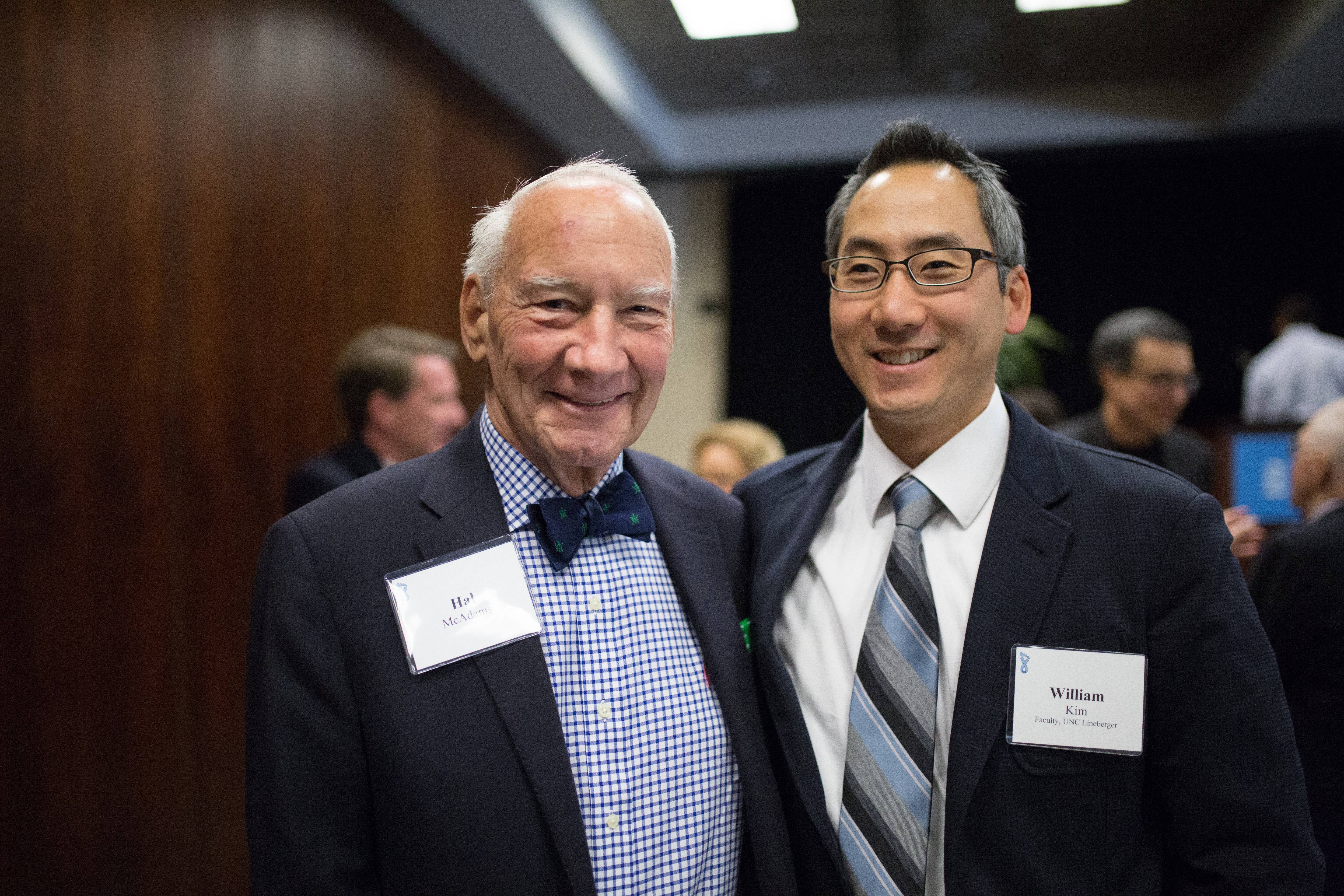UNC Lineberger recently partnered with IBM Watson to study whether the technology platform’s ability to “read,” analyze large amounts of big data, and generate evidence-based clinical recommendations could have a clinical role. The research findings are promising, and Hal McAdams is thankful that Watson found a treatment for his bladder cancer after others had failed him.

Partnerships – both local and global – play a key role in UNC Lineberger’s success as a comprehensive cancer center. We frequently collaborate with individuals or organizations to achieve goals that may otherwise be unattainable if pursued independently. The ultimate purpose of our partnerships is to seek scientific solutions that provide the best possible cancer care to our patients.
Within the last year, our partnership with IBM/Watson has been extremely productive and shows great promise for the future use of artificial intelligence at UNC Lineberger. Watson is a technology platform that uses natural language processing skills to understand grammar and content, process large amounts of “big data,” and then, based on evidence and the quality of the information it’s given, it’s able to present answers and solutions to questions or problems. You may remember Watson as the computer that played on the game show “Jeopardy!” a few years ago.
Hal McAdams: Back on the greens, back to life
Hal McAdams loves to play golf, and if the weather is good, most days you’ll find him at the Greensboro Country Club, decked out in his finest haberdashery. He’s a fixture on the course, having served on the club’s board of directors for years. But in 2014, Hal put away his golf clubs and made his way to UNC Lineberger for a second opinion after being diagnosed with advanced bladder cancer.
“I wasn’t feeling well, and after running some tests, my family practitioner referred me to a local urologist,” explains the 75-year-old retired furniture merchandiser. “The urologist found a tumor and removed it, but he was unable to get all the cancer. I came to UNC to discuss my treatment options.”
“It’s one of the most expensive cancers to treat, yet research is woefully underfunded,” Billy Kim, MD.
Hal met with Billy Kim, MD, who soon began treating his stage III bladder cancer with a standard of care chemotherapy. But Hal’s cancer progressed, and the medicine caused him to become very ill. After more testing, Kim recommended surgery to remove Hal’s bladder.
“Following the procedure, I sent a biopsy of Hal’s tumor to be sequenced – or de-coded – through UNCseq, comparing it to normal tissue samples,” says Kim. “That analysis told me that Hal would very likely respond well to a drug called Everolimus (commercially known as Affinitor), which is FDA approved for other cancers, but not for bladder cancer. Hal agreed to try it, and he had a wonderful response. He immediately started feeling better, and subsequent scans showed a reduction in the cancer that was originally in his lymph nodes. But to be honest, we didn’t know why.”
In December 2015, IBM’s Watson gave Kim his answer. “I took the sequencing data from Hal’s tumor biopsy and ran it though the Watson technology. Within 24 hours, Watson was able to provide a scientific explanation as to why Hal was considered an ‘’exceptional responder.’’ That’s the value of Watson,” Kim says. “It’s can quickly extract key information from a huge amount of scientific data and reveal insights, patterns, and explanations that we might not have discovered on our own.”
These days, Hal is back on the golf course, and he is extremely grateful for the care he continues to receive at UNC Lineberger. “You know, it’s sort of ironic,” the UNC alum (’65) says. “When I was an undergrad at Carolina, I shared a house with one of the Lineberger boys. Now I’m being treated at the cancer center that is his family’s namesake, and I wouldn’t want to be anywhere else.”
